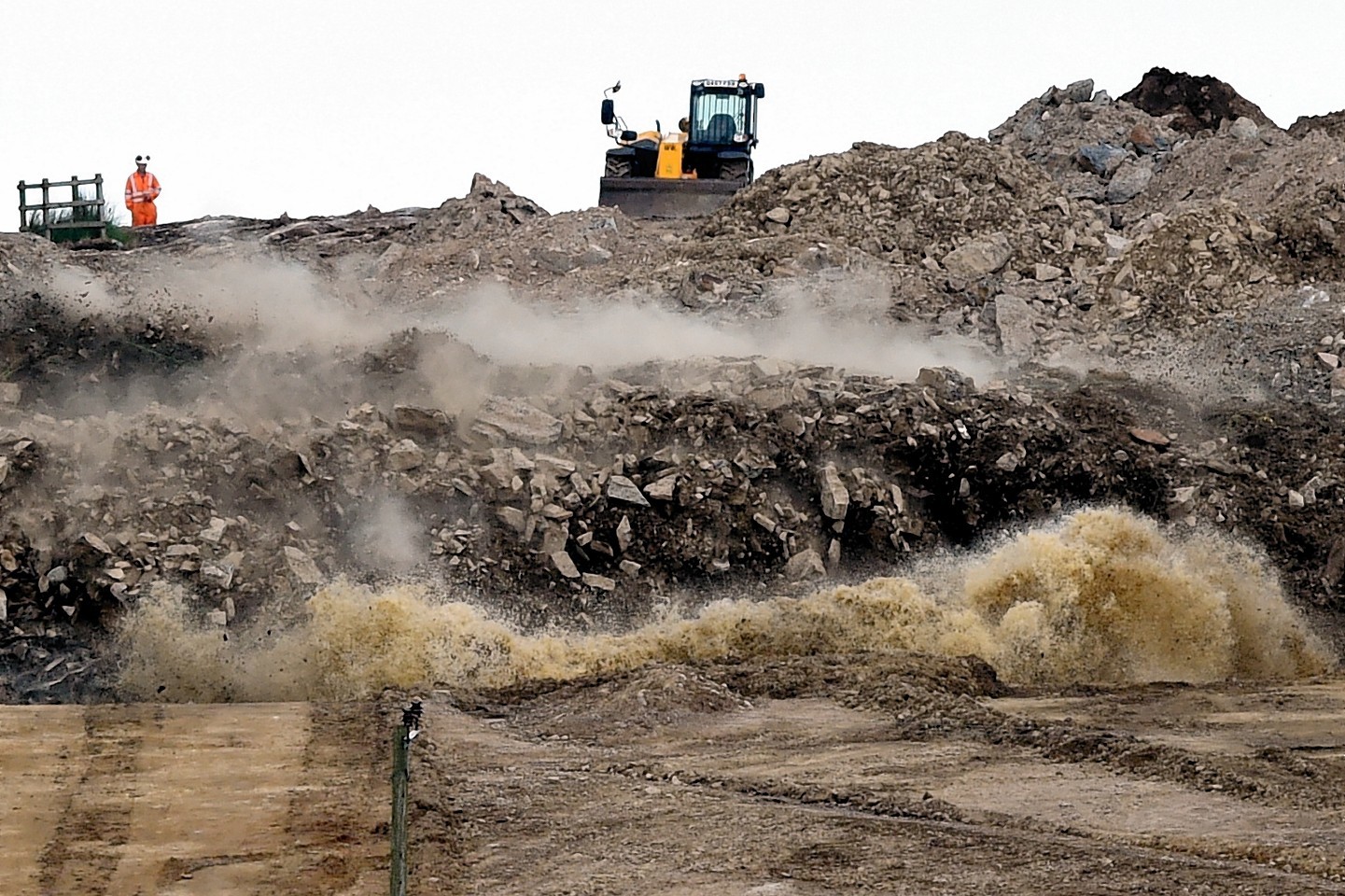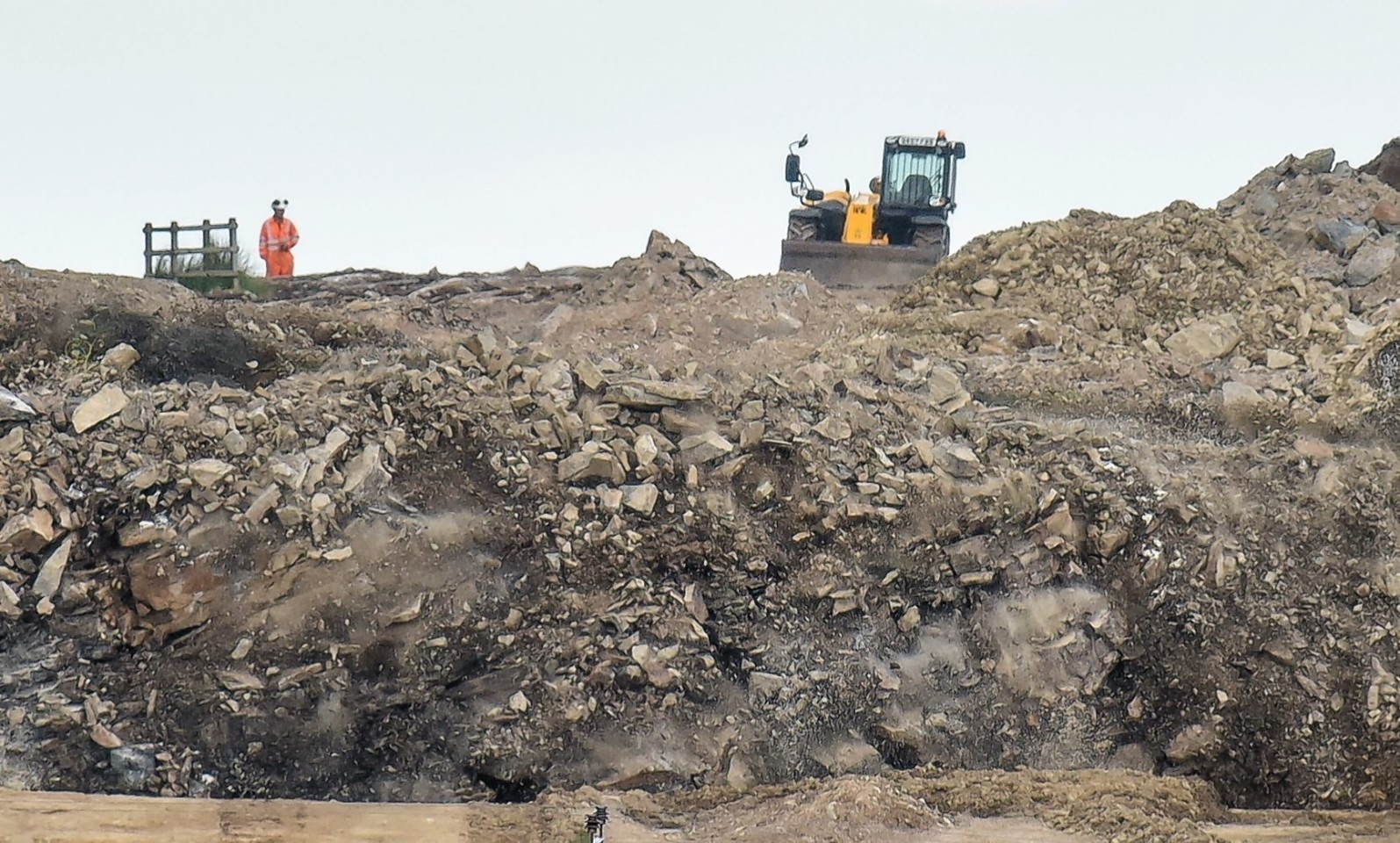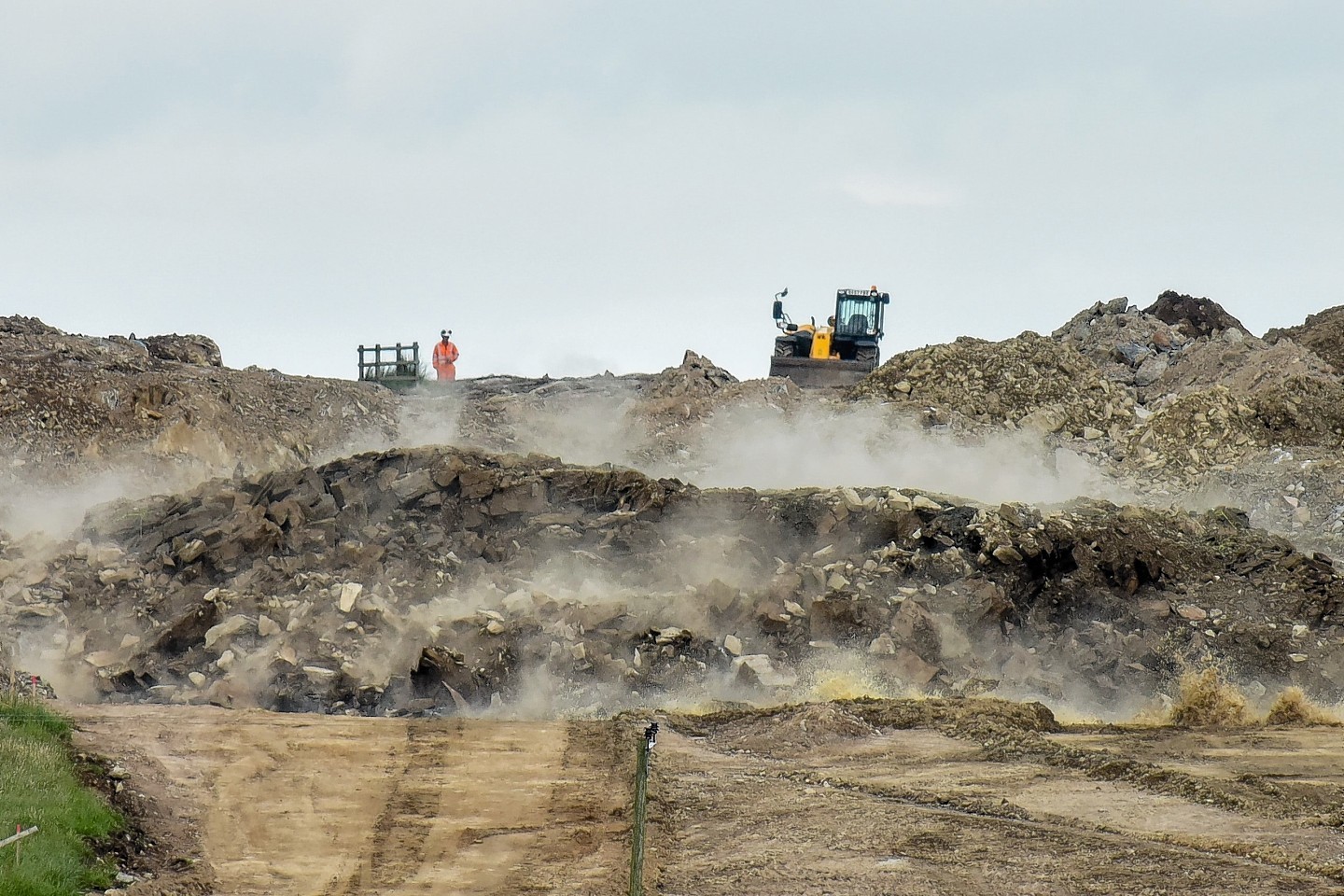Clouds of dust were sent into the sky yesterday as explosives blasted through rock to make way for the Aberdeen bypass.
The first blasting and rock drilling work for the £745million Aberdeen Western Peripheral Route is now underway, helping the construction team lower the ground to the new road level.
Yesterday, the first blasting was carried at Rothnick and Cleanhill, north of Cookney, were a section of the seven-mile Fastlink is being built.
About 20 construction workers gathered to witness the milestone, along with boss Dave Hill and Transport Scotland’s project manager Scott Shaw.
A small group of residents could also be seen watching from the blast, which was the first in a 14-week series of explosions scheduled for 2.30pm each weekday.
The blasting process allows the construction team to remove rock, which will then be crushed and used for concrete and aggregate, and to build up embankments along the route.
Mr Shaw said it was a big day for the project team, as the road is clearly now taking shape.
He added: “This is part of the overall earthworks for the road. The only way to do that effectively is with blasts, which will take place for about 14 weeks, and along the 58km scheme there will be quite a few other areas.
“It will be every day but it’s probably no more than a rumble of thunder.
“This is a milestone today, as it shows the project is really underway.”
The blasting process will be continued along the 36-mile AWPR route, with the excavated materials used locally to minimise the number of heavy trucks on the country roads.
Mr Hill, construction director for the south section of the bypass, said: “It’s a milestone for the project. It’s about seven million tonnes of rock in total that will require controlled blasting, and then be broken down into size and excavated and taken for further crushing so it can be used elsewhere.
“This is the biggest roads project in Britain, it’s 60km long and it’s a really great civil engineering project.
“It’s a huge project, and probably only compared to the M6 Toll (in Birmingham). This is a great project to be involved in.”
Traffic management will be place during the blasting, and a siren will sound for 30 seconds before the detonation, followed by three short bursts directly beforehand.


